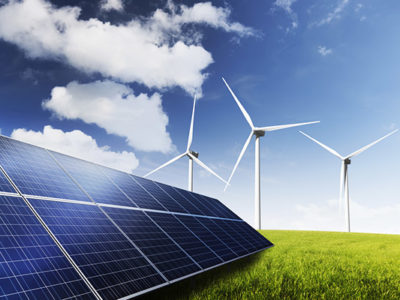Rewarding Climate Adaptation Heroes
Earlier this week, Mother Jones posted a piece on how the public rewards politicians for disaster response instead of disaster prevention:
Politicians get much more credit for their reaction to disasters like Sandy than they do for trying to ensure disasters don’t cause so much damage in the first place.
The post cites a 2009 study, Myopic Voters and Natural Disasters, by Andrew Healy of Loyola Marymount University and Neil Malhotra of Stanford University, which analyzed data on natural disasters, government spending, and election results to conclude that,
voters reward the incumbent presidential party for delivering disaster relief spending, but not for investing in disaster pre- paredness spending. These inconsistencies distort the incentives of public officials, leading the government to underinvest in disaster preparedness, thereby causing substantial public welfare losses. We estimate that $1 spent on preparedness is worth about $15 in terms of the future damage it mitigates.
These results have clear implications for climate change adaptation.
A recent Washington Post piece discusses how high sea levels magnified the damage of Hurricane Sandy. Here in California, sea levels have already risen as much as 7 inches over the past century, and are predicted to rise an additional 12-18 inches by 2050 and 21-55 inches by 2100. According to California’s Climate Change Adaptation Strategy, billions of dollars worth of coastal property is exposed to sea-level rise, including $3.8 billion in Los Angeles County, $4.9 billion in San Francisco, and $24 billion in San Mateo County. (For comparison, the property damage due to Hurricane Sandy is an estimated $20 billion.)
 It is unsurprising that adaptation planning does not garner the same admiration from the electorate as disaster relief coordination. Providing food, water, and shelter to disaster victims is simply more emotionally stirring for most people than risk assessment modeling, water pump installation, or drainage improvement projects, for example. This is not to discount the heroism, dedication, and sacrifice of those who participate in disaster response. Unlike major disaster events, however, climate change will be creeping. Sea levels will not wash over shores and harbors all at once. Instead, the ocean will rise incrementally, with changes imperceptible from day to day. Thus, effectively planning for the adverse effects of sea-level rise and other climate change impacts will require a new kind of hero — and perhaps also a national shift in focus from disaster reaction to prevention. Troublingly, only 59% of major U.S. cities are actively preparing for climate change. While politicians rightfully deserve praise for good disaster response, we might also examine, and hold them politically accountable for, their disaster preparedness efforts–or lack thereof.
It is unsurprising that adaptation planning does not garner the same admiration from the electorate as disaster relief coordination. Providing food, water, and shelter to disaster victims is simply more emotionally stirring for most people than risk assessment modeling, water pump installation, or drainage improvement projects, for example. This is not to discount the heroism, dedication, and sacrifice of those who participate in disaster response. Unlike major disaster events, however, climate change will be creeping. Sea levels will not wash over shores and harbors all at once. Instead, the ocean will rise incrementally, with changes imperceptible from day to day. Thus, effectively planning for the adverse effects of sea-level rise and other climate change impacts will require a new kind of hero — and perhaps also a national shift in focus from disaster reaction to prevention. Troublingly, only 59% of major U.S. cities are actively preparing for climate change. While politicians rightfully deserve praise for good disaster response, we might also examine, and hold them politically accountable for, their disaster preparedness efforts–or lack thereof.
Reader Comments
4 Replies to “Rewarding Climate Adaptation Heroes”
Comments are closed.







Reblogged this on Standard Climate.
Reblogged this on Standard Climate.
Dear Megan,
The best way to adapt to climate change is by voting for the right people. I agree with rewarding climate adaptation heroes and hope to be rewarded soon. Have a good day.
Dear Megan,
The best way to adapt to climate change is by voting for the right people. I agree with rewarding climate adaptation heroes and hope to be rewarded soon. Have a good day.